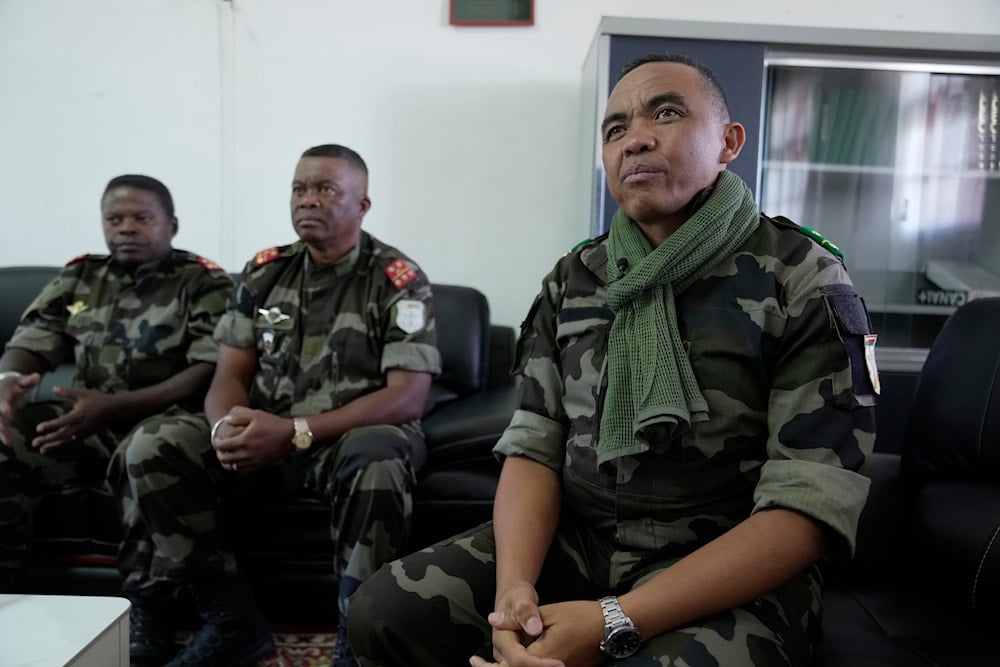AU suspends Madagascar, military leader to be sworn in as president
Colonel Michael Randrianirina will be sworn in as president on Friday after leading a military coup that ousted Andry Rajoelina.
-

CAPSAT military unit commander Col. Michael Randrianirina during an interview with The Associated Press in Antananarivo, Madagascar, Wednesday, Oct. 15, 2025 (AP)
Madagascar’s new military ruler, Colonel Michael Randrianirina, announced he will be sworn in as president on Friday and expressed his openness to talks with the African Union after it suspended the country’s membership following a coup that ousted President Andry Rajoelina.
Former President Rajoelina, who was impeached by lawmakers after he fled the country during the weekend, has condemned the takeover and refuses to step down despite youth-led Gen Z protests demanding his resignation and widespread defections within the security forces.
In a statement late on Wednesday, CAPSAT commander Randrianirina said, "Colonel Michael Randrianirina will be sworn in as the President for the Refoundation of the Republic of Madagascar during a formal hearing," adding that the High Constitutional Court would perform the ceremony.
On Wednesday, the African Union announced that the bloc had suspended Madagascar with immediate effect following the coup and called for the restoration of civilian-led governance as well as elections.
At a press conference on Thursday, Randrianirina said the bloc's decision was expected, adding, "From now on, there will be behind-the-scenes negotiations, we’ll see how things unfold."
Randrianirina said earlier that the military had taken power and had dissolved all institutions except for the lower house of parliament, or National Assembly, adding that a committee led by the military would rule for up to two years alongside a transitional government before new elections are organized.
CAPSAT brings down the leader it brought to power
The CAPSAT, an elite military unit in Madagascar, announced it had taken control of the government after weeks of widespread anti-government protests and the impeachment of President Andry Rajoelina, a dramatic escalation in the nation's political crisis driven by public anger over power and water shortages.
The elite unit, which was responsible for bringing Raojelina into power after a coup in 2009, formally declared its authority on the African country on October 14, with the CAPSAT commander Randrianrina announcing the suspension of the constitution and the establishment of military rule.
Parliament voted to impeach Rajoelina for dereliction of duty with 130 votes in favor, which surpassed the constitutional two-thirds threshold, and although the presidency initially tried to block the vote by dissolving the National Assembly, the constitutional court later validated the impeachment and recognized Randrianirina’s authority.
The unrest began on September 25, led by youth movements frustrated by widespread service failures and political stagnation, and it intensified when the CAPSAT military unit joined the protests over the weekend, followed by the gendarmerie, which acknowledged "faults and excesses" in previous crackdowns that, according to United Nations reports, resulted in at least 22 deaths.
The public sentiment appears deeply anti-colonial as demonstrators accuse France of interfering in Madagascar’s internal affairs, with civil engineer Koloina Rakotomavonirina, 26, saying, "It’s like they’re colonizing us again," and adding, "We want them to leave our island for good."

 3 Min Read
3 Min Read










